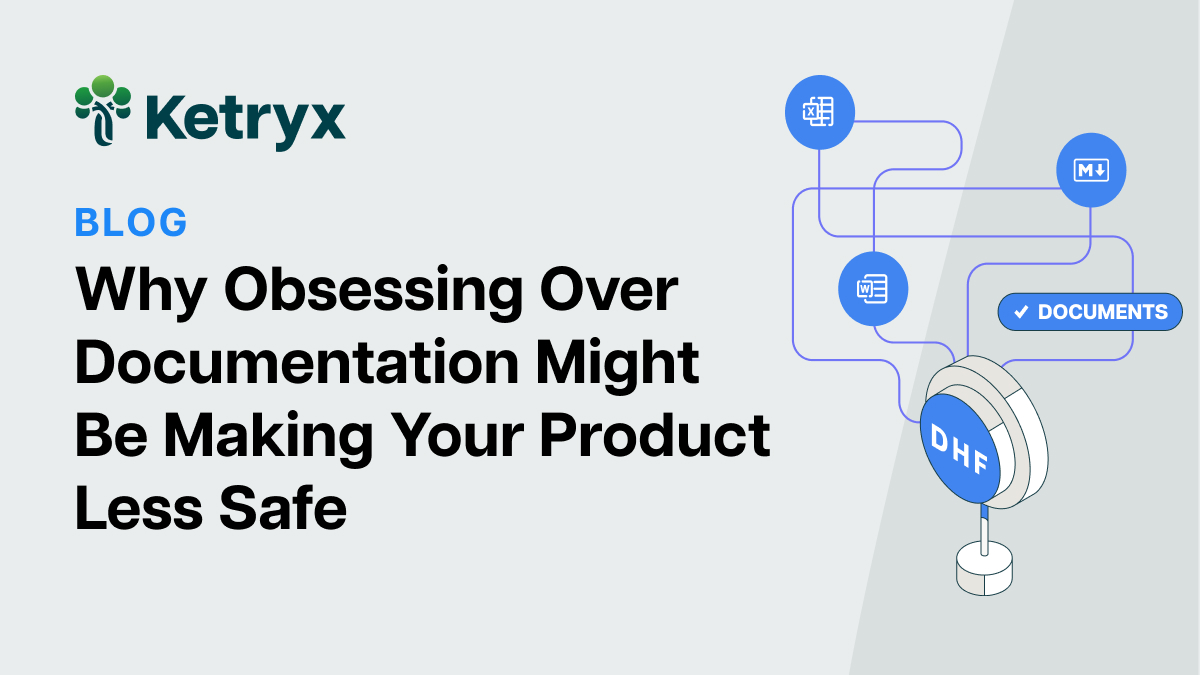
Announcing Ketryx’s UL Certification to IEC 62304, ISO 13485, and ISO 14971
Table of Contents
In highly regulated settings such as the medical device industry, compliance with international standards is vital to help ensure that medical devices are safe for use. Compliance also serves to open up the global market to manufacturers. We built Ketryx to streamline the process of establishing compliance with these standards — not only for our customers but also for our own software, too.
Every manufacturer of medical device software should comply with three critical standards: IEC 62304, ISO 13485, and ISO 14971, or be able to demonstrate equivalence. Ketryx supports compliance with these standards by providing features such as automated documentation, integration with development tools, real-time traceability, process control, and risk management — all on a rigorously verifiable lifecycle management platform. We are proud to say that we are now certified to all three of these standards.
Why We Got UL-Certified
We worked with UL Solutions, the oldest certifying body in the world, to obtain third-party, science-backed certification for Ketryx’s connected application lifecycle management software. As consumers, we have UL-certified stickers on many of the devices that we use, products that we buy, and appliances we have in our homes. It’s a mark that indicates a product has been extensively tested to specific standards and found safe, reliable, and trustworthy.
Ketryx took this step because it was the right thing to do for our customers. By intentionally opening our company and our software up to scrutiny, we hope to both demonstrate our commitment to quality and transparency and be better prepared for the inevitable audits of our enterprise customers.
By obtaining UL certification to IEC 62304, ISO 13485, and ISO 14971, Ketryx not only aligns our platform with FDA-recognized standards but also demonstrates our dedication to maintaining the same high standards of compliance and quality that enable our customers to meet regulatory expectations. Our certification to these three standards reinforces our commitment to not only provide tools for compliance but also to assure internal processes. For us, as for our customers, quality and safety in the development of medical device software is paramount.
Adhering to these stringent standards mandates a culture of rigor and discipline. As a result, we employ a structured, systematic, and continuously validated approach in the development of the Ketryx platform. This approach results in enhanced reliability, better documentation, and a stronger focus on risk management and the safety of our customers' products. Ultimately, it contributes to a more robust and compliant product that better serves the needs of the medical device industry and meets the high-quality standards that our customers expect from us.
When our customers meet with our team, they quickly understand our ability to provide not just a platform, but also the necessary knowledge and experience. Our team’s familiarity with industry standards, our focus on compliance, and our commitment to quality are evident in these conversations. By adhering to the standards on a daily basis, we are able to showcase real world examples of how the Ketryx platform meets the standards that many companies struggle to comply with.
By embedding certification in our own software development process, Ketryx has faster release cycles. Every few weeks, we release new validated software, its process and documentation certified by UL.
For many companies in the life sciences industry, building regulated software at this speed is unimaginable. But with Ketryx, these companies are finding that what they thought was impossible is now a reality—and that the Ketryx team really understands how hard it is to build validated software, because we’ve done it. And now, we have UL certification to confirm those claims for the world.
Paul Jones is Ketryx’s Vice President of RA/QA and founded the FDA’s Software Engineering Lab.

Paul is a world-renowned software safety expert who joined Ketryx following 25 years at the Food and Drug Administration (FDA). He helped create the FDA’s approach to safety-critical software and medical devices and founded the FDA’s software engineering lab. While holding committee positions with groups that handled medical software safety standards like ISO 13485, ISO/IEC 62304, and ISO 14971, he reviewed over 300 devices, carried out numerous inspections, and provided training to FDA staff on software quality, risk management, and software engineering. Prior to the FDA, he worked 20 years as a systems/software engineer for companies like Ford Motor, Electronic Data Systems, Honeywell, and SAIC. He holds a Master of Science degree in Computer Engineering from Loyola University, Maryland.




